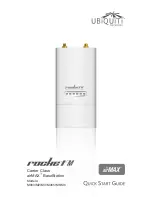
97
environments light change, the system can alert you to guarantee video continuity. Camera
masking interface is shown as in Figure 5-67. You can enable alarm output channel and then
enable show message function. You can refer to chapter 5.6.7.1Motion detect for detailed
information.
Tips:
You can enable preset/tour/pattern activation operation when video loss occurs.
Note:
In Detect interface, copy/paste function is only valid for the same type, which means you can
not copy a channel setup in video loss mode to camera masking mode.
Figure 5-67
5.6.8
PTZ
Note:
All the operations here are based on PELCOD protocol. For other protocols, there might
be a little difference.
Cable Connection
Please follow the procedures below to go on cable connection
z
Connect the dome RS485 port to NVR 485 port.
z
Connect dome video output cable to NVR video input port.
z
Connect power adapter to the dome.
PTZ Setup
Note:
The camera video should be in the current screen. Before setup, please check the
following connections are right:
z
PTZ and decoder connection is right. Decoder address setup is right.
z
Decoder A (B) line connects with NVR A (B) line.
Boot up the NVR, input user name and password.
In the main menu, click setting, and then click Pan/Tilt Control button. The interface is shown
as in Figure 5-68. Here you can set the following items:
z
Channel: Select the current camera channel.
z
PTZ type: There are two types: local/remote.
z
Protocol: Select corresponding PTZ protocol(such as PELCOD)
















































